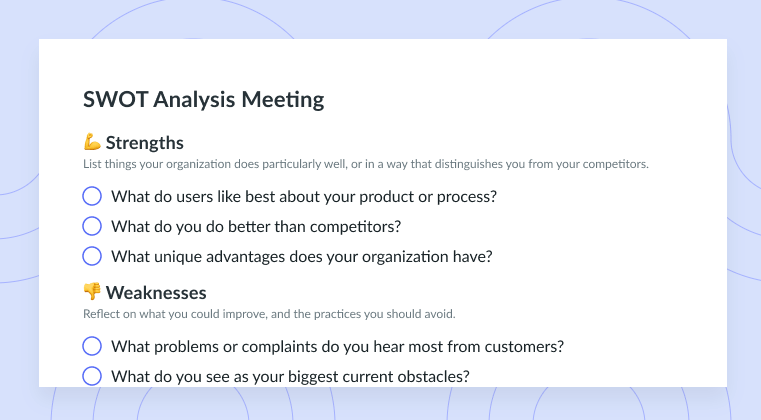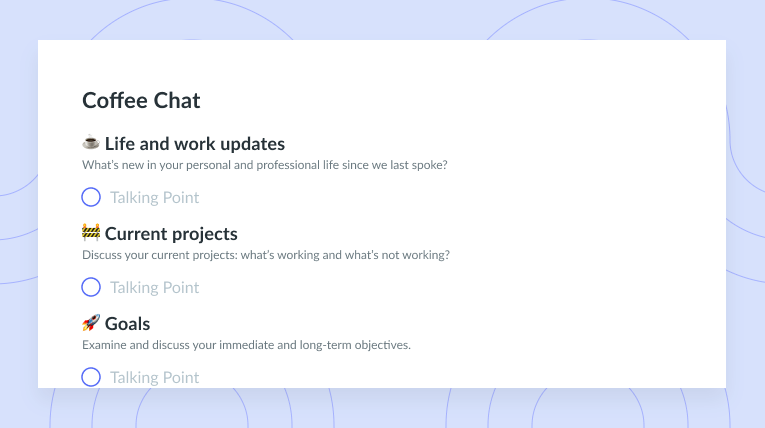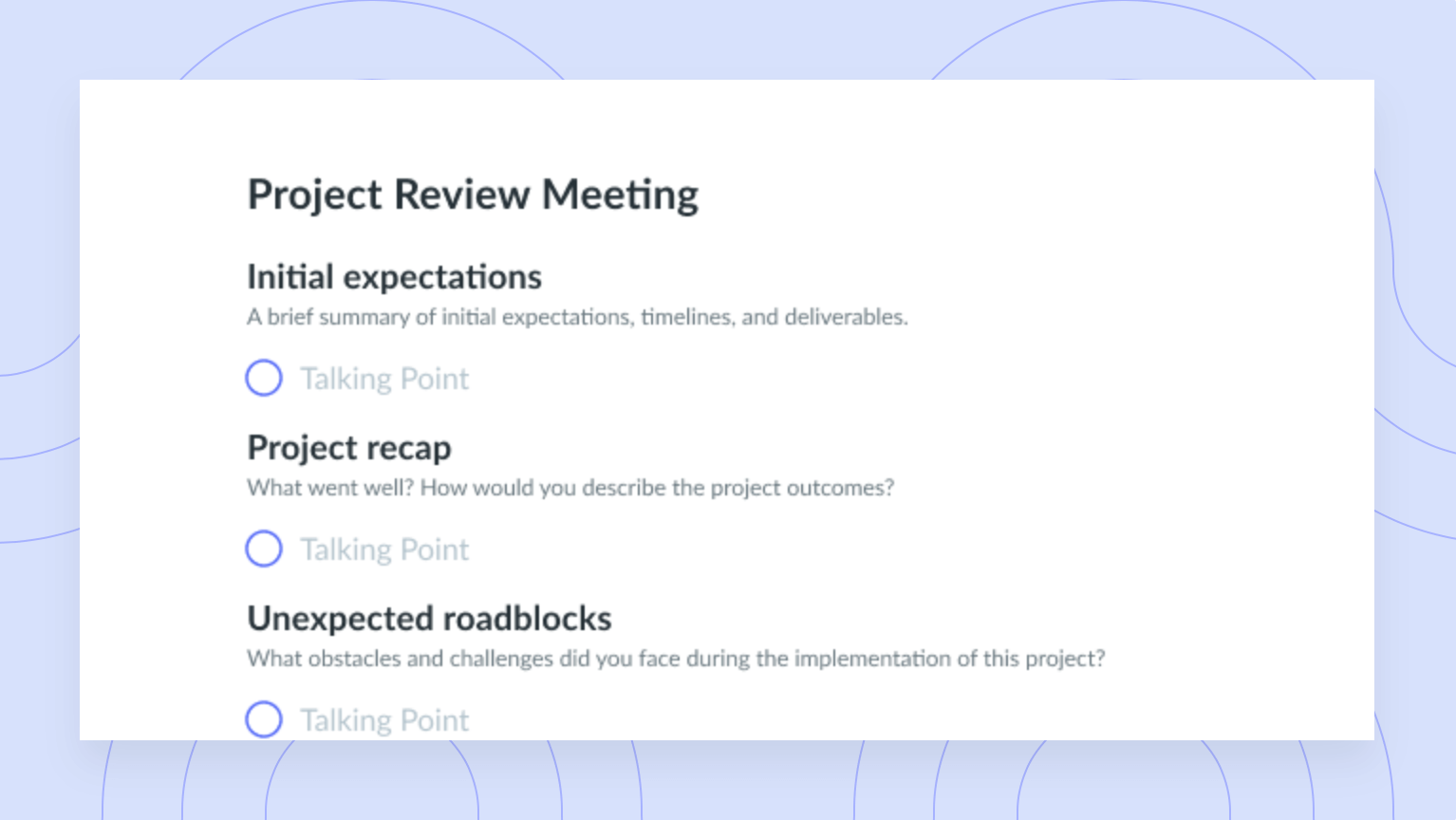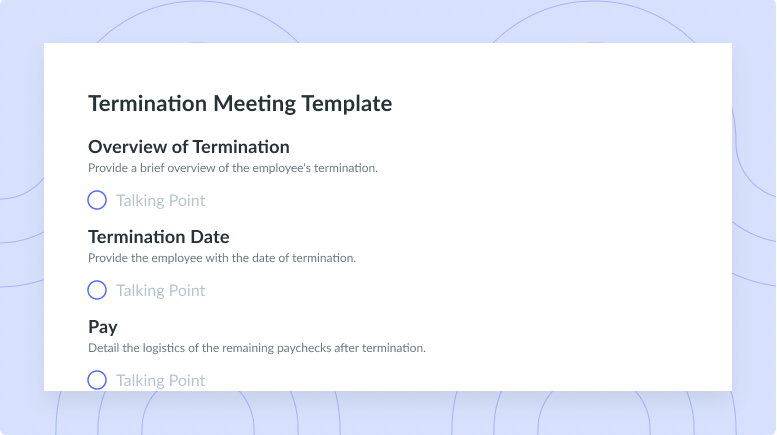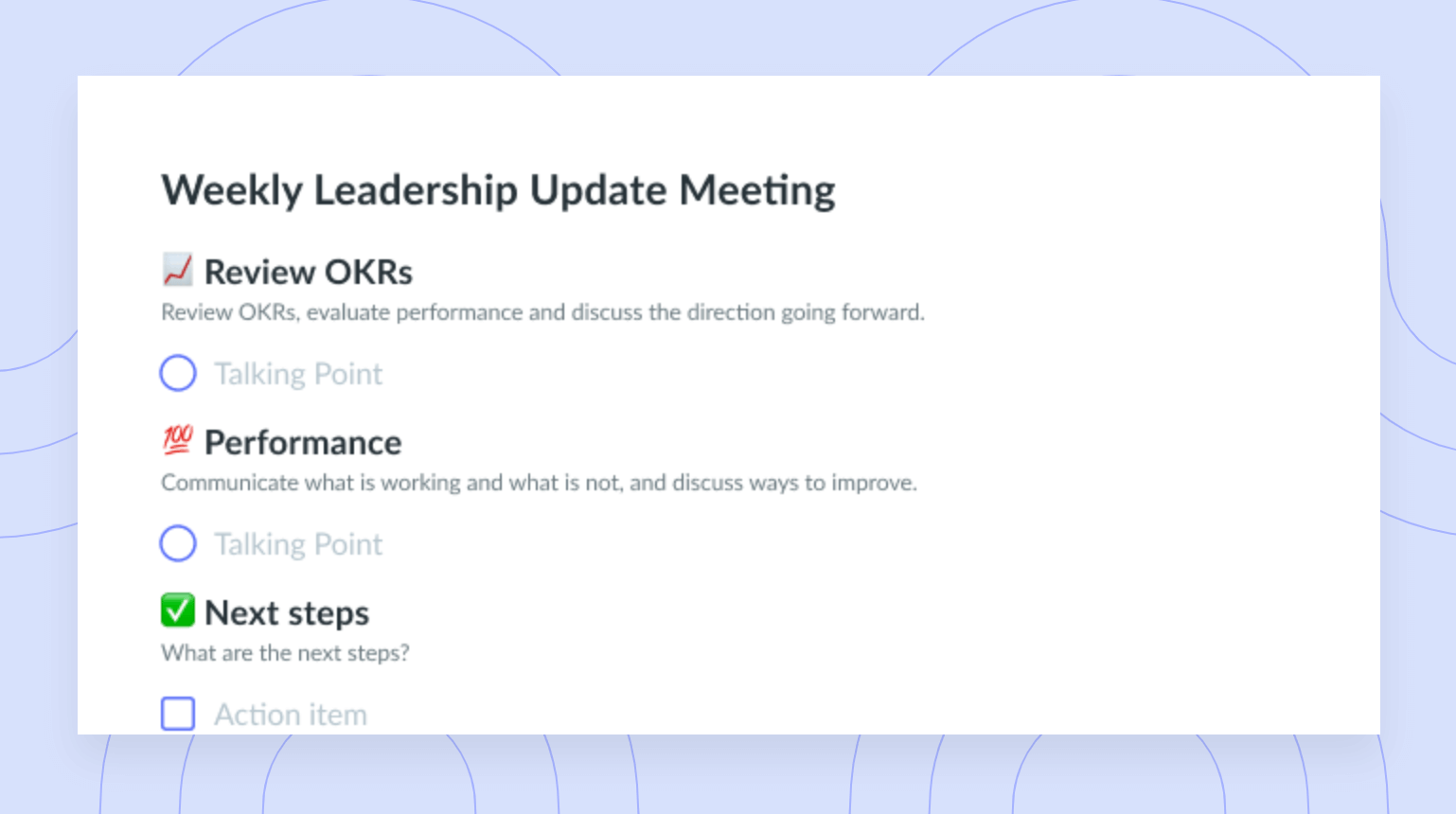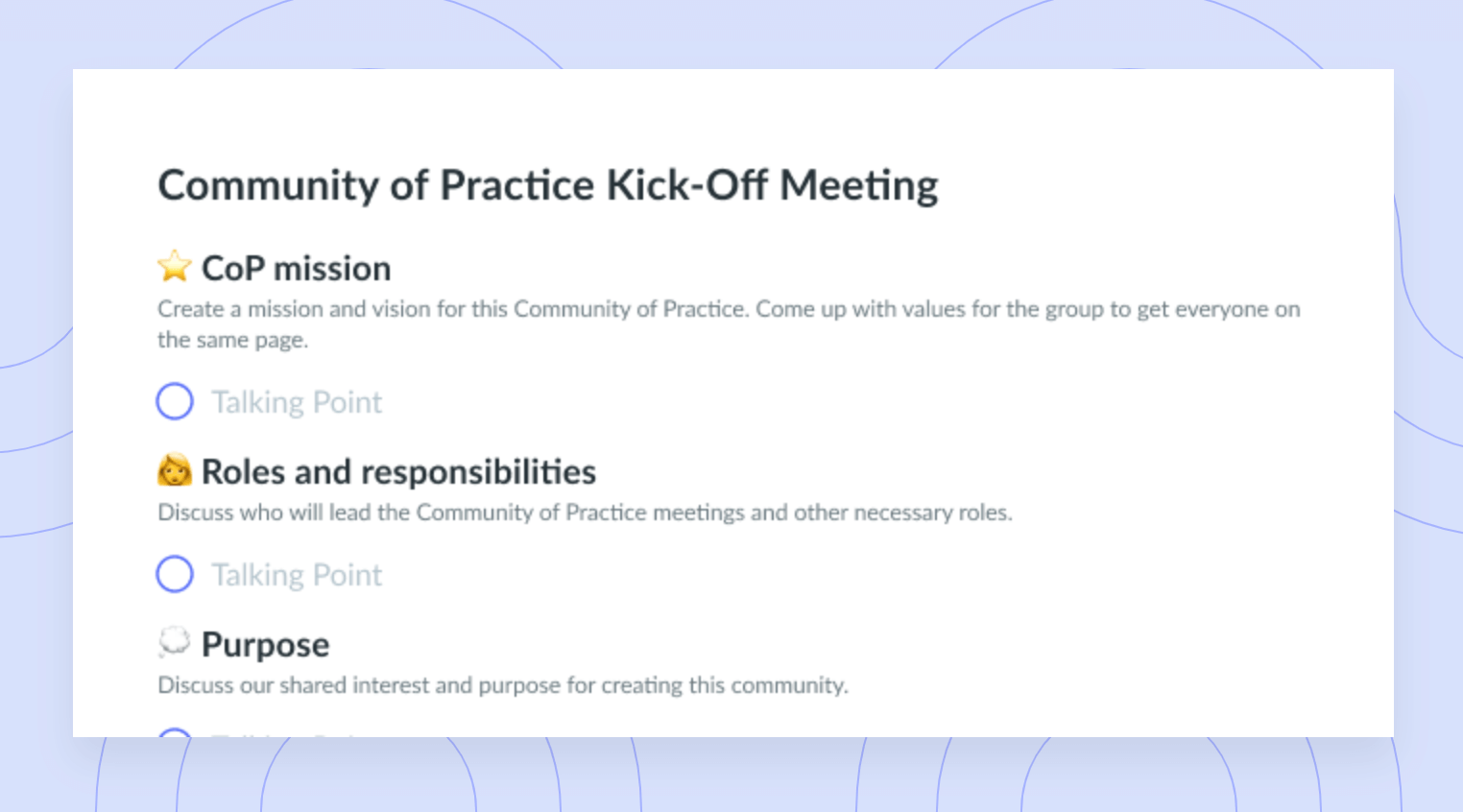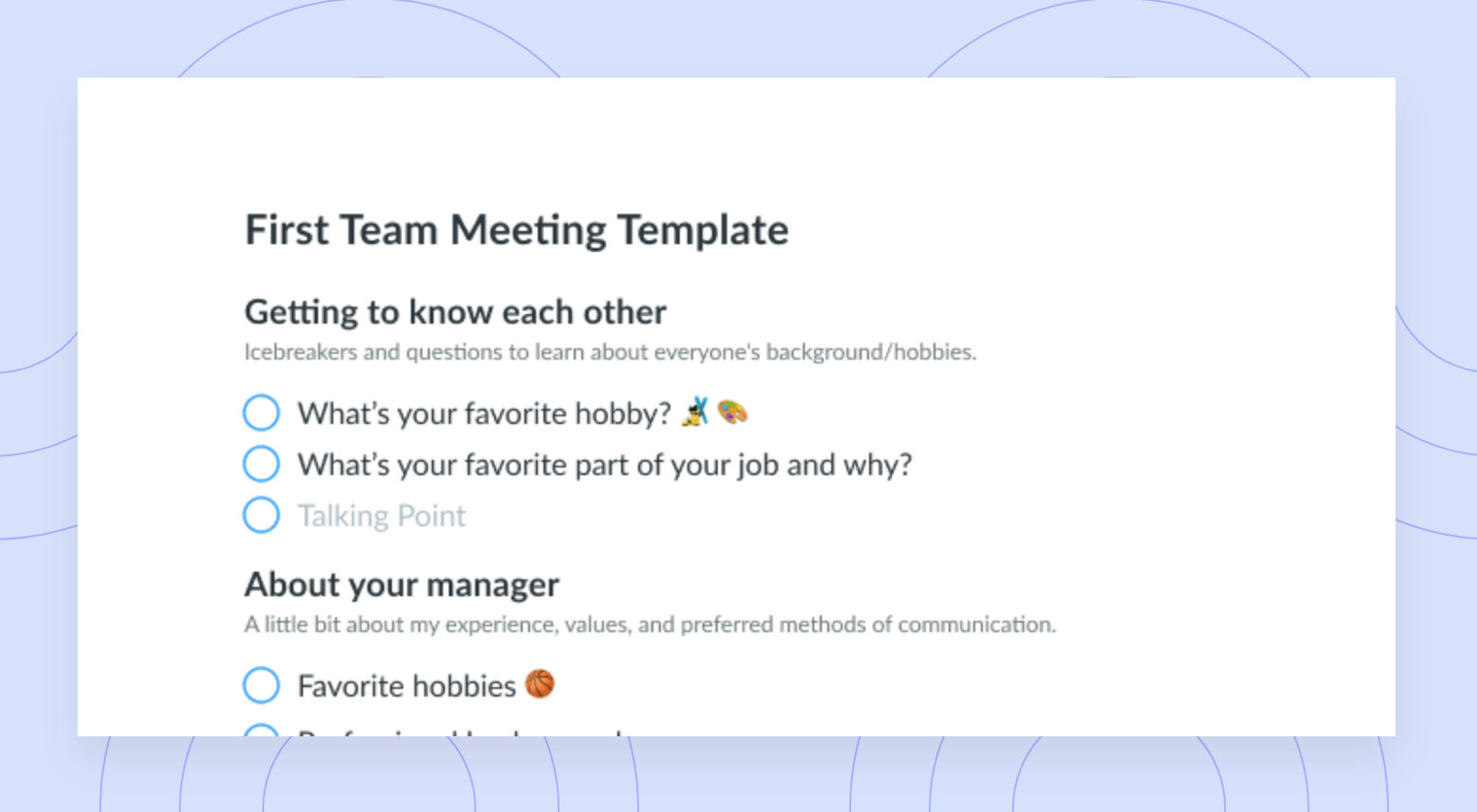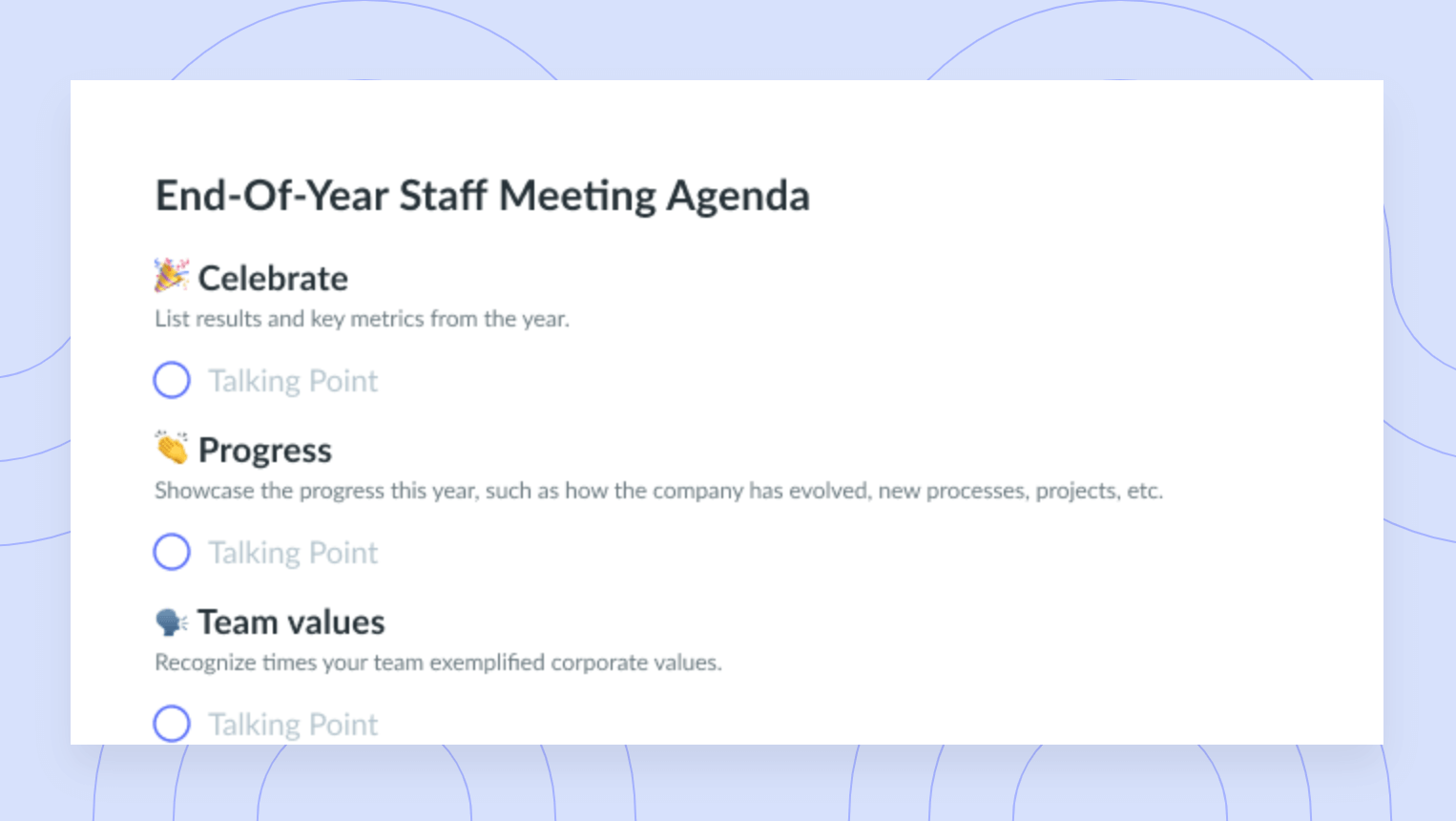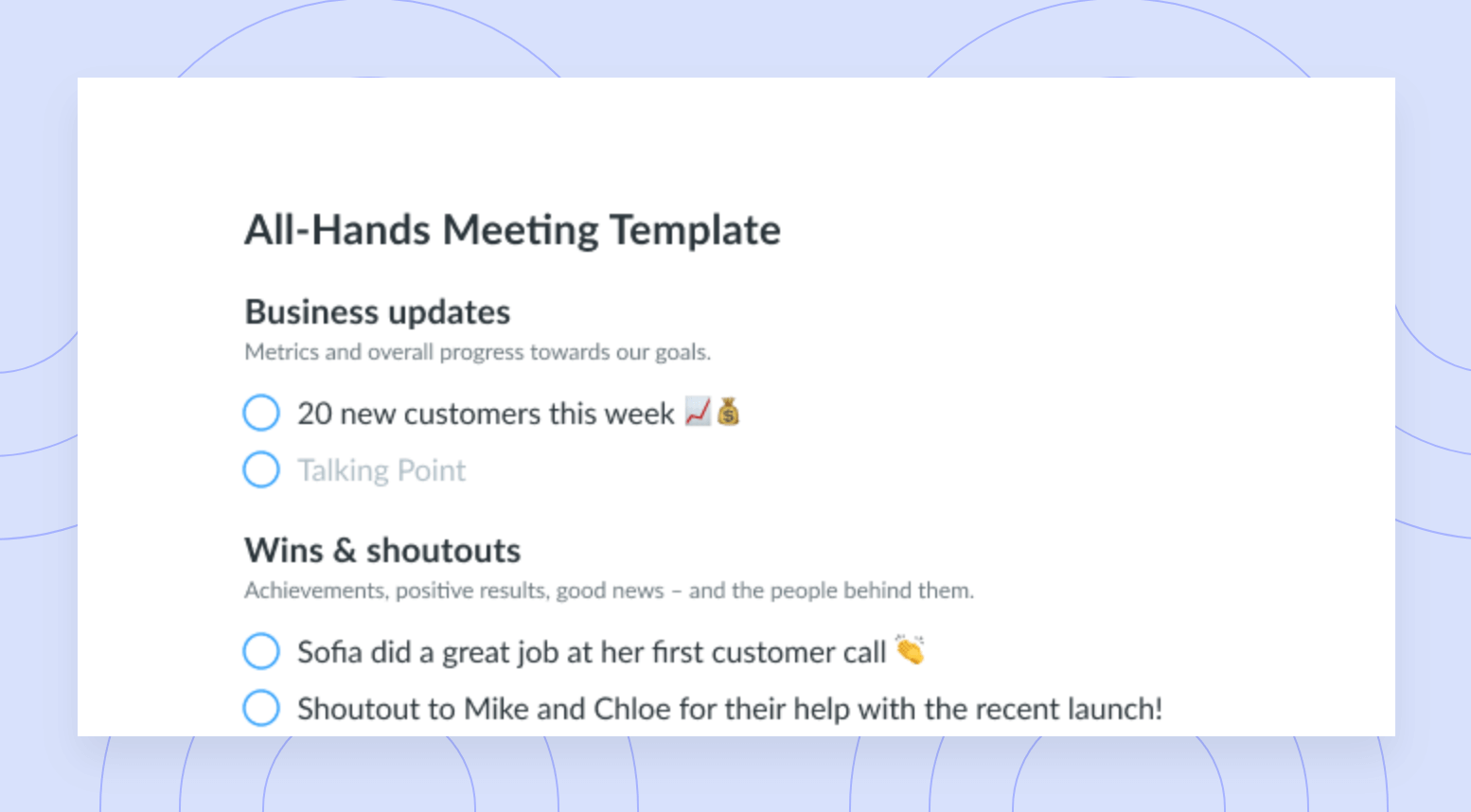
Content Planning Meeting Template
Review your content team's priorities and make decisions about the themes that will be covered in the weeks or months to come.


Creating content that your readers love day after day isn’t easy, and involves thorough planning by your content marketing team. This is done during regular content planning meanings. As the name suggests, content planning meetings are usually characterized as a meeting among all content creators to review the upcoming content schedule and make decisions about the themes and post topics that will be covered in the weeks or months to come.
Content planning meetings are a great way to align your organization’s entire marketing team on their collective purpose and message. There is also the added advantage of each individual knowing what they will need to do next. A successful content planning meeting will result in a list of action items for each content creator involved.
We’re sharing this content planning meeting template curated by Brody Dorland. This template was specifically designed to help you run productive planning sessions, incorporate input and ideas from all relevant team members, and automate your content planning process to keep your marketing engine running week after week.
What’s inside this Content Planning Meeting Template:
1 Recent Customer Stories or Questions
The first phase of any content planning meeting should involve inviting team members to share any recent customer stories or questions that may help direct content themes that are helpful or relevant to your customers needs. Encourage team members to come prepared to each content planning meeting with a customer story or question that the rest of the team can use as a brainstorming trigger to determine how to turn customer comments into meaningful content. Not only does this help establish the content themes your customers are most interested in reading, it also helps team members develop their listening habits so that they’re always on the lookout for customer feedback that could become content opportunities.
2 Data Review
The next phase of the content review meeting should be spent reviewing the data and determining any hits and misses from the previous month, quarter or campaign. Understanding what content did or didn’t perform as expected will help to identify how content can be improved or repurposed in order to garner more views, clicks, likes, shares, comments and conversions.
3 Buyer Profiles/Personas
Creating buyer profiles or personas are a great way to gain a better understanding of your end-users or audience and determine their respective interests as it relates to your products or services. Each content planning meeting should spend time reviewing your buyer profiles and determining what new content can be created to attract and engage each persona. Buyer personas are used to establish each audience segment’s values and pain points and help the content marketing team ensure each of these areas are being addressed through your organization’s content.
4 Buying Cycles
Following a discussion and brainstorming session around your buyer profiles or personas, the next phase of your content planning meetings should be spent discussing what new content can be created that addresses each persona’s buying cycle/stages. Just like how each persona has different values and pain points to address, each type of buyer probably has a unique buying cycle that should be addressed and aligned with your content. As part of your team’s content strategy efforts, content planning meetings should provide an opportunity to review the buyer’s unique journeys and identify specific stages for each person that may play a role in moving your solution through their buying process.
5 Content Categories/Themes Review
After spending the first four phases of your content planning meetings brainstorming themes that could or should be touched on in your upcoming content, it’s time to determine how your marketing team will move forward with the information and ideas you’ve identified thus far. This involves assigning content, deadlines and review process to each content team member to create in the coming week. This list of content themes and ideas should also be revisited during your next content planning meeting to determine the success of each topic among your buyer personas, and further refine ideas for continuous improvement.
Having a clear content planning process and meeting agenda will help your marketing team focus on the content that will drive desired results, set best practices for content ideation and creation, and continue to improve your content engine to ensure your team is always outputting timely, relevant and engaging content.
Tips for effective Content Planning Meetings
- Most marketing teams host content planning meetings on a weekly cadence, in order to ensure any emerging trends are captured and client questions are answered in a timely fashion.
- Content planning meetings are not a top-down effort directed by the marketing manager, everyone should be involved, and ready to contribute including all marketing team members, content writers and editors. Instead of your content team sitting down with blank notepads, help your team understand the components of your content meetings with an agenda that clearly defines the expectations that they need to bring ideas to the table.
- A great practice to build into your content planning meetings is to keep the discussion topics broad at the beginning of the meeting, brainstorming new topic ideas and overall writing themes, and slowly move toward the more detailed aspects of the upcoming schedule.








